Ars Technica

A tale of two GMO crops: Why were omega-3 producing plants developed faster than golden rice?
One of the arguments that has been advanced to promote genetically engineered crops is that .... [c]rops could be engineered ...
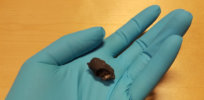
DNA found in 10,000-year-old ‘chewing gum’ sheds light on ancient Sweden
In the 1990s, archaeologists recovered a few chewed-up lumps of birch bark pitch, some of which still held fingerprints and ...
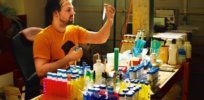
‘Brazen’ biohacker under investigation by California health officials for ‘genetic self-experimentation’
Prominent genetic "biohacker" Josiah Zayner is under investigation by California state officials for practicing medicine without a license. Zayner has ...

Why loss of sleep is ‘having a catastrophic impact on our health’
According to neuroscientist Matthew Walker, I'm doing serious damage to my health—and life—by not sleeping enough. "The decimation of sleep ...
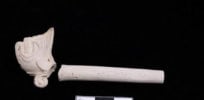
Glimpse into enslaved woman’s life offered by DNA found in clay pipe at Maryland plantation
Clay pipes used for smoking were so common in the 1700s and 1800s that it’s not very remarkable to find ...

Chasing the origin of hallucinations in the brain
People under the influence of hallucinogenic drugs like LSD often experience vivid visual hallucinations. But exactly what is happening within ...

Viewpoint: ‘Chickenpox parties’ aren’t just unnecessary—they’re incredibly dangerous
Kentucky Governor Matt Bevin made headlines [March 19] after revealing in a radio interview that he had purposefully exposed his ...
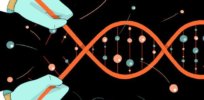
Why gene editing isn’t ready for treating human disease: It’s not ‘efficient enough’
Gene editing will likely always come with a bit of risk; when you're cutting and pasting DNA in millions of ...

Some of us may have ‘divine healing’ poop for treatment of gut disorders
Scientists often seem to be on a quest for sacred chalices or sterling ammo. But a group of microbiologists has ...

Video: Are biotech crops safe? A brief history of the GMO debate
Recent studies show the general public and the scientific community are deeply divided on the perceived safety of GMOs. Ars ...

‘Attack’ on masculinity? Psychology association defends new clinical guidelines for males
The American Psychological Association is on the defensive over its newly released clinical guidance for treating boys and men, which links ...

Using stem cells to trace autism’s development to earliest days of pregnancy
Figuring out how autism starts is complicated. … [A] large international team obtained skin cells from eight autistic people and ...

Plague genome offers clues about origins of Black Death pandemic
Yersinia pestis, the subject of [Barbara Bramanti’s] research, is the bacterium responsible for three bubonic plague pandemics over human history ...

Searching for the genetic links to ADHD risk
If you have ADHD, chances are higher that your siblings do, too. Estimates differ as to how strong the connection ...
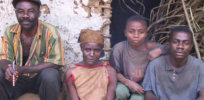
Missing data? African study shows why we need to expand the human reference genome
The human genome sequence, first published in 2001, has some important information missing. The latest version of it, called GRCh38, ...

Does being a night owl increase breast cancer risk?
A paper presented at the National Cancer Research Institute [November 5] has made for some flashy headlines, like this confident declaration from India’s Economic Times: ...

Can llamas give us a universal flu vaccine?
Llama antibodies are different from ours. Our antibodies are a mix of two pairs of proteins, heavy and light, wrapped ...

300,000-year-old stone tools found in Saudi Arabian desert could shed light on human migration out of Africa
Stone tools unearthed in Saudi Arabia’s inhospitable Nefud Desert indicate that members of our genus Homo had ventured beyond the ...

‘Gender-equality paradox’: Why are differences stronger in wealthier, gender-equal nations?
In Sweden, girls are just as likely to go to school and university as boys are. Women make up a greater ...
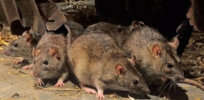
Rats and hepatitis E: How animal diseases jump to humans
The first known case of rat hepatitis jumping to a human patient has reopened a long-standing mystery of how the ...
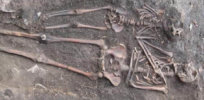
Diagnosing deadly medieval fever epidemics through ancient DNA
Many epidemics of fever ravaged Europe from ancient times through the early 20th century. But one disease stands out in ...

Ancient Italian cemeteries tell tales of barbarian migration
We know very little of [Longobards] or any of the other barbarian tribes that roared through Western Europe other than ...

Brain implants could control epileptic seizures with chemical stimulants
People who suffer severe epileptic seizures may one day be able to control or even prevent them with an electronic ...

Pinpointing the internal clock that helps us mark the passage of time
Manmade clocks may precisely measure time, but, from a human perspective, the passage of time is remarkably fluid. It drags ...

How math skills and a love of patterns are linked to autism
[O]ur brain uses two modules to try to make sense of the world. One systemizes: it looks for patterns and ...

Hospital ‘superbugs’ getting better at defeating alcohol-based hand sanitizers
Popular hand sanitizers may be heading the way of antibiotics, according to a study published this week in Science Translational Medicine ...
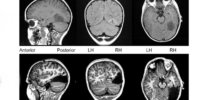
Boy almost back to normal 3 years after doctors remove large section of his brain
A boy who had large parts of the right side of his brain removed due to a slow-growing tumor made ...

Genes play a role in educational achievement, but not as much as your parents’ education does
What's more important, genes or environment? …The advent of genomics has given us a new perspective on the role of ...

